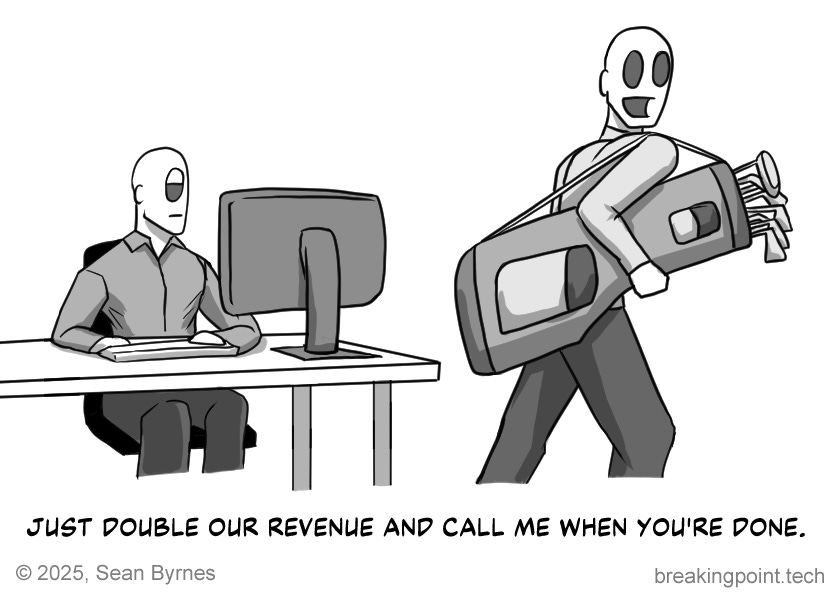Managing Outcomes
Most of management is about outcomes, yet leaders spend most of their time on methods.
If you liked reading this, please click the ❤️ button on this post so more people can discover it on Substack. Thanks!
Pop Quiz: When a member of your team is running a project poorly, what do you do?
Jump in and manage the project yourself
Hope that they find a way to turn it around
Cancel the project and start again
The answer depends on whether you want to fix the project or the employee performance. If the project is mission critical and you cannot let it fail, then option 1 might be the right decision. In most cases, however, you want to improve the employee performance so this does not happen again. Neither 2 or 3 will help you do that.
In the past we’ve talked about the difference between methods and outcomes, and how important it is to develop executive function in your team. These things are related! If you give your team outcomes (goals) and let them figure out how to achieve them (methods), you will develop better executive function in your team. Letting your team make mistakes and learn the right methods to hit goals is a critical part of development.
Going back to our failing project, if you want the employee to learn methods you cannot jump in and manage it for them. They might learn what you are doing, but not why you are doing it. Cancelling the project won’t teach them anything, nor will hoping.
To teach them something, you need to remind them of the outcome expected and make it clear their methods are not working. That might be a simple 1:1 meeting, or a project review meeting. Whatever format, the employee needs to understand that they need new methods to reach the outcomes expected of them.
That’s it. That’s management.
Holding someone accountable doesn’t mean telling them how to do their job, it means giving them outcomes and making it clear when they are not achieving them. If the employee wants to grow they will take that feedback, adjust their methods and learn an important lesson.
Of course, not all employees can learn and grow. If you repeat this process more than a handful of times, the employee is struggling and not learning. In those cases you do need to step in and make significant changes without worrying about the learning experience.
Hopefully, you hire well and those are few and far between.
Focusing on the outcomes, and letting your team learn about the methods, is not just a best practice for employee development. It’s an important part of scaling as a leader. Your business will eventually be too big for you to know everything that is happening, and you won’t have the ability to jump in and fix the problems. You will need to focus on outcomes because that’s the only way you can manage a huge and sprawling organization.
It sounds easy to focus on outcomes instead of methods, but it can be hard to tell the difference in the moment. You might see the right methods as an outcome, or see only a single path to the outcome you need. Regardless, if you cannot trust your team to choose the right methods to hit the outcomes then you don’t really have a team.
The next time you have a struggling project, be clear about the expected outcomes and that the methods are not working. Let the employee rise to the occasion, you both might learn something new.
For more on Managing People, see:


